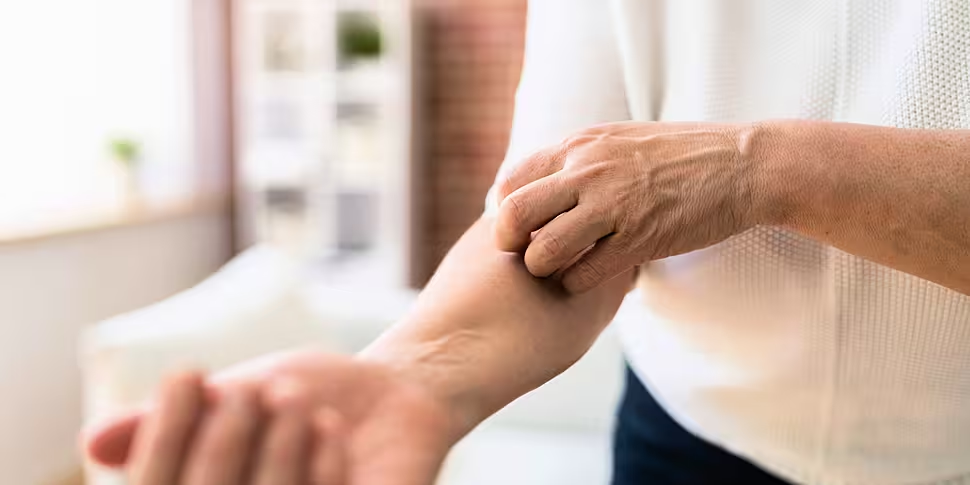Studies suggest medication can be used to cure pathological itching, according to immunologist Professor Luke O’Neill.
Speaking on Show Me the Science, Prof O’Neill said people can become itchy for “various reasons”.
“Itch is a response where suddenly you feel a tingle and neurons are firing in the skin and that triggers you to scratch that area,” he said.
“It has evolved as a way to get rid of something nasty – you scratch to get rid of venom or sometimes bugs burrow into the skin and you scratch to get rid of them.”
He explained that sometimes a scab as it causes “a little bit of localised inflammation”. This inflammation then encourages the immune system to repair the wound faster.
“Strangely it can also be very pleasurable,” he said. “Everyone knows you can’t beat a good scratch every now and again because it gives you a good sense of pleasure, which is probably a motivator.
“But in some conditions, itches get really severe and horrible, and it can be really irritating.”
Itching to spread germs
Prof O’Neill explained you may want to scratch sometimes because a germ is trying to spread throughout your body, sending signals to your brain to scratch and spread the germ.
“Or you might scratch, pick up some infection and touch something else,” he said.
Itching is also associated with conditions such as dermatitis, chicken pox, eczema and allergies.
Recent studies have now begun to investigate what causes itching more specifically in the body, according to Prof O’Neill.
“A whole range of factors have been studied in the skin,” he said.
“[Nostalgia paresthetica] one, two and three, cytokine interleukin-31, a rogue’s gallery that drives itching.”
A cause and cure for itching?
A study by Harvard Professor Isaac Chiu has also demonstrated what causes itching – and how it might be prevented.
According to Prof O’Neill, the study found the bacteria staph aureus, which is found in almost all patients with dermatitis, releases a chemical that activates nerves in the skin to cause an itchy sensation.
“V8 is released by the bacteria and triggers a protein called PAR1. It is then triggered and hey presto, you start scratching.”
Prof O’Neill said PAR1 has been studied in different contexts, including how it causes blood clotting.
“Medication can be used to block PAR1 [for blood clotting],” he said. “So you could use medication to stop pathological itching.”
Studies have not yet tested this theory on humans, so while the medication seems promising, the cure to itching remains a head-scratcher.
Main image: Woman scratching her arm. Image: AndreyPopov / Alamy Stock Photo









